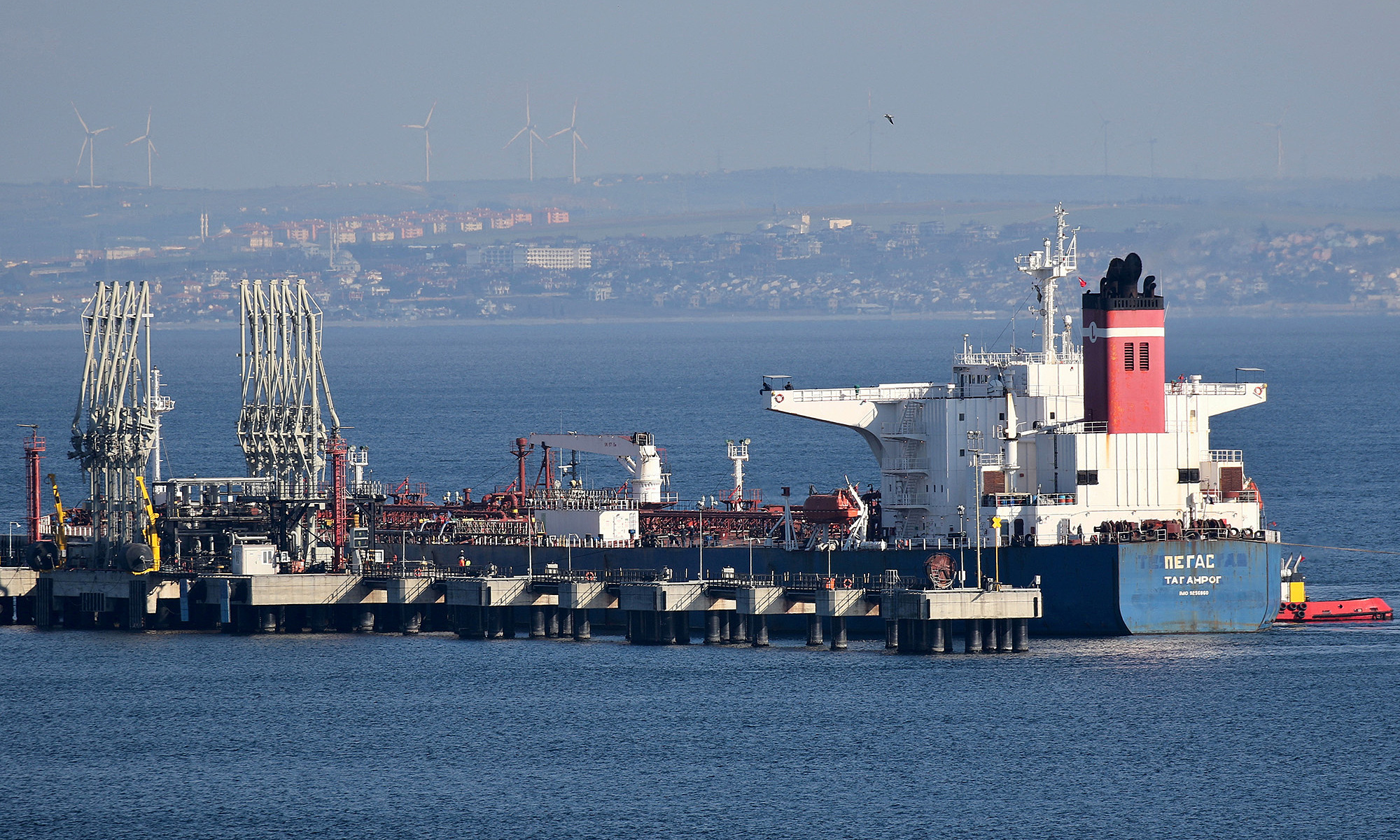The 27 EU member states finalized the new price cap on 18/7, following a proposal from the European Commission (EC) to lower the cap from $60 to $45, below market prices, to target Russia's energy revenue.
The previous $60 per barrel cap was established by Europe and its Western allies in 2023. It was largely symbolic as most Russian crude oil sold for less. However, the regulation was maintained in case prices rose.
The EU had hoped to persuade the G7 countries to join this round of price cap reductions to broaden the impact. However, the conflict in the Middle East pushed oil prices up, and the Trump administration did not participate. Brent and WTI crude oil prices are currently trading around $70 and $68 per barrel, respectively.
 |
The Russian-flagged oil tanker Pegas in Marmara Ereglisi, Turkey on 16/1/2022. Photo: Reuters |
The Russian-flagged oil tanker Pegas in Marmara Ereglisi, Turkey on 16/1/2022. Photo: Reuters
The decision to lower the price cap is part of a series of sanctions adopted by the EU on 18/7. These also include a ban on transactions related to the Nord Stream pipeline between Russia and Germany. Rosneft's refinery in India is also affected.
In addition, the new sanctions package targets Russia's banking sector, aiming to limit the Kremlin's ability to raise capital or conduct financial transactions. Two Chinese banks have been added to the restricted list.
According to High Representative for Foreign Affairs Kaja Kallas, this is "one of the EU's strongest sanctions packages against Russia to date". "The message is very clear: Europe will not back down in its support for Ukraine. The EU will continue to increase pressure until Russia ends the conflict," she stated.
The EU has imposed multiple rounds of sanctions against Russia since the Ukraine conflict began in 2/2022. Over 2,400 officials and "entities" – typically Russian government agencies, banks, companies, or organizations – have had their assets frozen and travel banned.
Recently, sanctions issued on 20/5 targeted a fleet of 200 Russian oil tankers. On 18/7, 105 more vessels were added to the list, bringing the total number of ships blocked from ports, marinas, and shipping operations in Europe to over 400.
Europe is facing increasing difficulty in reaching consensus on new sanctions packages, as measures targeting Russia also harm the economies of the 27 member states. Slovakia delayed the latest sanctions package over concerns that Russia would halt gas supplies, a major source for the country.
Phien An (according to AP)












